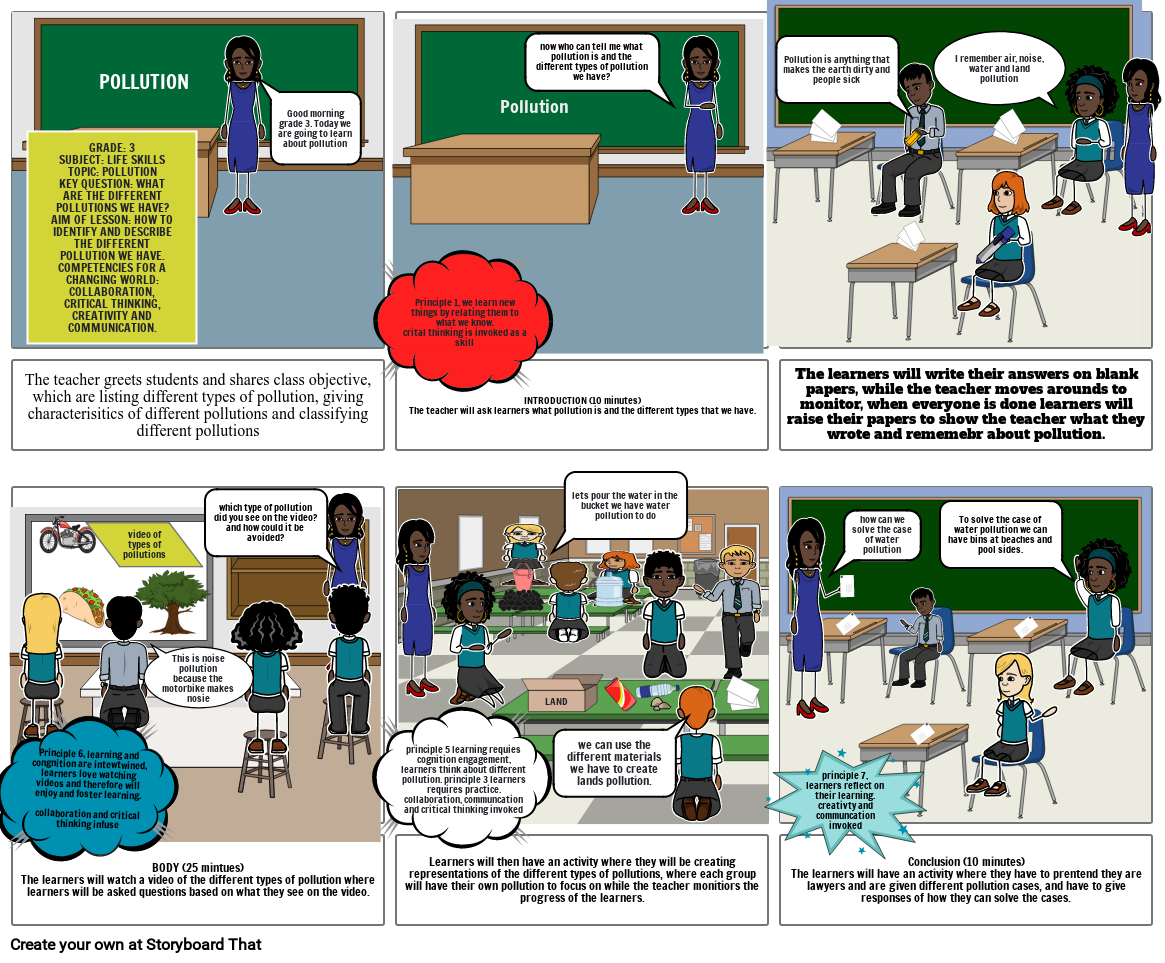iterative

Storyboard Text
- GRADE: 3SUBJECT: LIFE SKILLSTOPIC: POLLUTIONKEY QUESTION: WHAT ARE THE DIFFERENT POLLUTIONS WE HAVE?AIM OF LESSON: HOW TO IDENTIFY AND DESCRIBE THE DIFFERENT POLLUTION WE HAVE.COMPETENCIES FOR A CHANGING WORLD: COLLABORATION, CRITICAL THINKING, CREATIVITY AND COMMUNICATION.
- POLLUTION
- Good morning grade 3. Today we are going to learn about pollution
- Principle 1, we learn new things by relating them to what we know.crital thinking is invoked as a skill
- Pollution
- now who can tell me what pollution is and the different types of pollution we have?
- Pollution is anything that makes the earth dirty and people sick
- I remember air, noise, water and land pollution
- The teacher greets students and shares class objective, which are listing different types of pollution, giving characterisitics of different pollutions and classifying different pollutions
- video of types of pollutions
- This is noise pollution because the motorbike makes nosie
- which type of pollution did you see on the video? and how could it be avoided?
- INTRODUCTION (10 minutes)The teacher will ask learners what pollution is and the different types that we have.
- LAND
- lets pour the water in the bucket we have water pollution to do
- The learners will write their answers on blank papers, while the teacher moves arounds to monitor, when everyone is done learners will raise their papers to show the teacher what they wrote and rememebr about pollution.
- how can we solve the case of water pollution
- To solve the case of water pollution we can have bins at beaches and pool sides.
- Principle 6, learning and congnition are intewtwined, learners love watching videos and therefore will enjoy and foster learning. collaboration and critical thinking infuse
- BODY (25 mintues)The learners will watch a video of the different types of pollution where learners will be asked questions based on what they see on the video.
- principle 5 learning requies cognition engagement, learners think about different pollution. principle 3 learners requires practice.collaboration, communcation and critical thinking invoked
- Learners will then have an activity where they will be creating representations of the different types of pollutions, where each group will have their own pollution to focus on while the teacher monitiors the progress of the learners.
- we can use the different materials we have to create lands pollution.
- principle 7, learners reflect on their learning.creativty and communcation invoked
- Conclusion (10 minutes)The learners will have an activity where they have to prentend they are lawyers and are given different pollution cases, and have to give responses of how they can solve the cases.
Över 30 miljoner storyboards skapade

